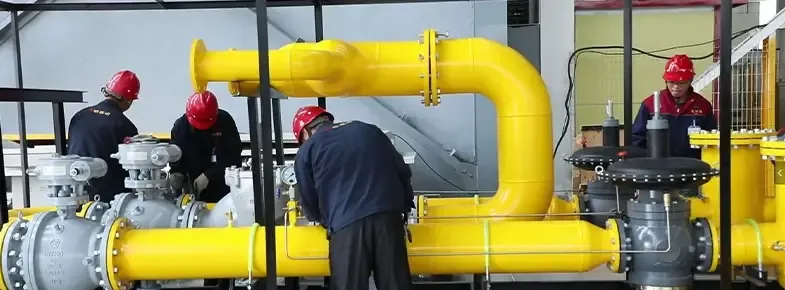
Nov . 30, 2024 19:56
Back to list
Natural Gas Distribution Station Operations and Safety Measures
The Role and Importance of Natural Gas Distribution Stations
Natural gas has emerged as a crucial energy source worldwide, fueling everything from home heating to industrial processes. Among the key components of the natural gas supply chain are distribution stations, which play an essential role in ensuring that this energy reaches consumers safely and efficiently. In this article, we will explore the significance of natural gas distribution stations, the processes involved, and the challenges they face in today's energy landscape.
Understanding Natural Gas Distribution Stations
Natural gas distribution stations serve as the vital link between the high-pressure transmission pipelines and the end-users, including homes, businesses, and power plants. These stations function to regulate the pressure of the gas and prepare it for safe delivery. Typically, natural gas is transported in a gaseous state under high pressure, but when it reaches distribution stations, the pressure must be reduced to a level that can be safely used by consumers.
The Processes Involved
At a natural gas distribution station, several critical processes take place
1. Pressure Regulation The high-pressure gas arriving at the station is routed through pressure regulators that reduce the pressure to the appropriate levels for distribution. This ensures that the gas can flow safely through the pipelines leading to consumers.
2. Measurement Accurate measurement of the gas volume is essential for billing and monitoring purposes. Flow meters and other measurement instruments provide real-time data on the amount of gas being distributed.
3. Odorization Although natural gas is odorless, a sulfur-based compound called mercaptan is added to give it a distinct smell, often compared to rotten eggs. This is a crucial safety measure, enabling quick detection of gas leaks.
4. Quality Control Gas quality is monitored to ensure it meets industry standards. This includes checking for contaminants and maintaining the necessary characteristics for safe consumption.
.
The Importance of Distribution Stations
محطة توزيع الغاز الطبيعي

Natural gas distribution stations are vital for several reasons
- Energy Security They ensure a reliable supply of natural gas, which is critical for maintaining energy security in many countries. A well-functioning distribution network helps to avoid shortages and price spikes.
- Safety The various safety measures implemented at distribution stations protect both the infrastructure and the public. With proper pressure regulation, odorization, and leak detection systems, these stations significantly reduce the risk of accidents.
- Environmental Impact Natural gas is often touted as a cleaner alternative to coal and oil. By facilitating the use of natural gas for heating and power generation, distribution stations contribute to lower greenhouse gas emissions and a reduced carbon footprint.
Challenges Faced by Distribution Stations
Despite their importance, natural gas distribution stations face several challenges
- Aging Infrastructure Many distribution networks were installed decades ago and may be in need of upgrades. Aging pipelines and equipment can lead to leaks and safety hazards, requiring significant investment for modernization.
- Regulatory Compliance Distribution stations must comply with stringent safety and environmental regulations, which can be costly and complex. Keeping up with changing regulations is a constant challenge for operators.
- Market Fluctuations The natural gas market is subject to price volatility due to geopolitical tensions, seasonal demand variations, and advancements in renewable energy technologies. Distribution stations must adapt to these changes to remain viable.
Conclusion
Natural gas distribution stations play a fundamental role in the global energy supply chain, providing essential services that ensure safe and reliable access to natural gas for consumers. As the energy landscape continues to evolve, investment in modernizing infrastructure and adhering to safety regulations will be crucial for the future of gas distribution. Emphasizing the importance of these stations will enable us to harness the benefits of natural gas while addressing the challenges they face in an increasingly complex energy environment.
Latest news
-
Safety Valve Spring-Loaded Design Overpressure ProtectionNewsJul.25,2025
-
Precision Voltage Regulator AC5 Accuracy Grade PerformanceNewsJul.25,2025
-
Natural Gas Pressure Regulating Skid Industrial Pipeline ApplicationsNewsJul.25,2025
-
Natural Gas Filter Stainless Steel Mesh Element DesignNewsJul.25,2025
-
Gas Pressure Regulator Valve Direct-Acting Spring-Loaded DesignNewsJul.25,2025
-
Decompression Equipment Multi-Stage Heat Exchange System DesignNewsJul.25,2025

